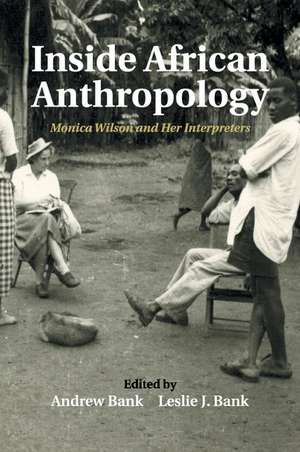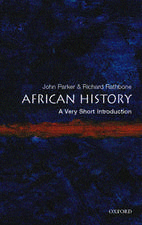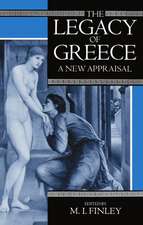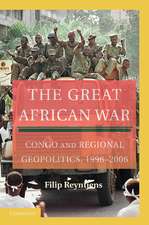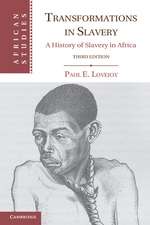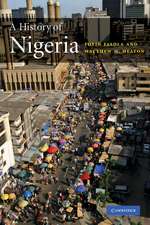Inside African Anthropology: Monica Wilson and her Interpreters: The International African Library, cartea 44
Editat de Andrew Bank, Leslie J. Banken Limba Engleză Paperback – 14 mar 2018
| Toate formatele și edițiile | Preț | Express |
|---|---|---|
| Paperback (1) | 323.27 lei 6-8 săpt. | |
| Cambridge University Press – 14 mar 2018 | 323.27 lei 6-8 săpt. | |
| Hardback (1) | 465.86 lei 6-8 săpt. | |
| Cambridge University Press – 7 apr 2013 | 465.86 lei 6-8 săpt. |
Din seria The International African Library
-
 Preț: 230.10 lei
Preț: 230.10 lei -
 Preț: 230.79 lei
Preț: 230.79 lei -
 Preț: 229.90 lei
Preț: 229.90 lei - 9%
 Preț: 592.46 lei
Preț: 592.46 lei -
 Preț: 282.48 lei
Preț: 282.48 lei -
 Preț: 264.64 lei
Preț: 264.64 lei -
 Preț: 202.36 lei
Preț: 202.36 lei - 11%
 Preț: 583.36 lei
Preț: 583.36 lei - 14%
 Preț: 891.04 lei
Preț: 891.04 lei - 11%
 Preț: 636.34 lei
Preț: 636.34 lei -
 Preț: 226.17 lei
Preț: 226.17 lei -
 Preț: 285.37 lei
Preț: 285.37 lei -
 Preț: 289.01 lei
Preț: 289.01 lei -
 Preț: 326.15 lei
Preț: 326.15 lei -
 Preț: 287.66 lei
Preț: 287.66 lei -
 Preț: 288.25 lei
Preț: 288.25 lei -
 Preț: 285.54 lei
Preț: 285.54 lei -
 Preț: 285.54 lei
Preț: 285.54 lei -
 Preț: 306.47 lei
Preț: 306.47 lei -
 Preț: 285.75 lei
Preț: 285.75 lei -
 Preț: 284.17 lei
Preț: 284.17 lei -
 Preț: 285.37 lei
Preț: 285.37 lei -
 Preț: 283.03 lei
Preț: 283.03 lei -
 Preț: 279.76 lei
Preț: 279.76 lei -
 Preț: 281.30 lei
Preț: 281.30 lei -
 Preț: 282.48 lei
Preț: 282.48 lei -
 Preț: 213.63 lei
Preț: 213.63 lei - 11%
 Preț: 585.59 lei
Preț: 585.59 lei
Preț: 323.27 lei
Nou
Puncte Express: 485
Preț estimativ în valută:
61.87€ • 64.35$ • 51.07£
61.87€ • 64.35$ • 51.07£
Carte tipărită la comandă
Livrare economică 14-28 aprilie
Preluare comenzi: 021 569.72.76
Specificații
ISBN-13: 9781108453172
ISBN-10: 1108453171
Pagini: 372
Ilustrații: 23 b/w illus.
Dimensiuni: 154 x 230 x 24 mm
Greutate: 0.55 kg
Editura: Cambridge University Press
Colecția Cambridge University Press
Seria The International African Library
Locul publicării:New York, United States
ISBN-10: 1108453171
Pagini: 372
Ilustrații: 23 b/w illus.
Dimensiuni: 154 x 230 x 24 mm
Greutate: 0.55 kg
Editura: Cambridge University Press
Colecția Cambridge University Press
Seria The International African Library
Locul publicării:New York, United States
Cuprins
Introduction Andrew Bank; Part I. Pondoland and the Eastern Cape: 1. Family, friends, and mentors: Monica Hunter at Lovedale and Cambridge, 1908–30 Andrew Bank; 2. The 'intimate politics' of fieldwork: Monica Hunter and her African assistants, Pondoland and the Eastern Cape, 1931–2 Andrew Bank; 3. City dreams, country magic: re-reading Monica Wilson's East London fieldnotes Leslie J. Bank; Part II. Bunyakyusa: 4. Pondo pins and Nyakyusa hammers: Monica and Godfrey in Bunyakyusa Rebecca Marsland; 5. Working with the Wilsons: the brief career of a 'Nyakyusa clerk', Leonard Mwaisumo (1910–38) Sekibakiba Peter Lekgoathi, Timothy Mwakasekele and Andrew Bank; Part III. Fort Hare and the University of Cape Town: 6. 'Your intellectual son': Monica Wilson and her students at Fort Hare, 1944–6 Seán Morrow; 7. Witchcraft and the academy: Livingstone Mqotsi, Monica Wilson, and the Middledrift healers, 1945–57 Leslie J. Bank; 8. 'Speaking from inside': Archie Mafeje, Monica Wilson, and the co-production of Langa: A study of social groups in an African township Andrew Bank with Vuyiswa Swana; Part IV. Legacy: 9. 'Part of one whole': anthropology and history in the work of Monica Wilson Seán Morrow and Christopher Saunders; 10. Gleanings and leavings: encounters in hindsight Pamela Reynolds; Bibliography.
Recenzii
'Inside African Anthropology … not only provides engaging insights into anthropology and anthropological research in twentieth-century Africa, but it is also a celebration of Monica Wilson as a teacher, mentor, and human being.' Owen J. M. Kalinga, African Studies Review
'This deftly organized, meticulously researched, and thoughtful volume places Monica Hunter Wilson at its core … Inside African Anthropology contributes to disciplinary and regional understanding of the co- or perhaps ensemble nature of anthropological scholarship through its manifold discussions of race, gender, and fieldwork methods in Southern Africa. It adds to a growing corpus of work on typically unseen co-producers of such knowledge, which in certain arenas includes Wilson herself.' Christopher M. Annear, International Journal of African Historical Studies
'Inside African Anthropology is an extremely important book because it brings to light the once 'hidden' relationship between Monica Wilson and the field assistants and some of the students she had. It also serves as a model for which other disciplines (physical, health and humanities sciences) need to explore their own complicities. The book places emphasis on the 'experiential' - the practice of fieldwork or ethnography, and the downplaying of the structural context. Such an approach shows the complexity of these relationships and by implication shuns a simplistic notion that it was a one-dimensional 'hidden form of colonialism', or that it provided in an equally simplistic way the space for an indigenous intelligentsia to emerge.' South African Journal of Science
'… a substantial achievement which successfully uses South African material to illuminate issues that lie at the heart of anthropology.' Journal of the Royal Anthropological Institute
'… the volume is not only about intellectual history. It is also a social history of the micro-politics of fieldwork. In this regard it is an advance on the pioneering work of Lyn Schumaker (2001), among others, offering superb studies on the production of knowledge at the rock face. It effectively destroys the image of a few lonely isolated minds rising like mountain peaks above their compatriots. It demonstrates that the clouds can hide other peaks and routes as well.' Anthropology Southern Africa
'This deftly organized, meticulously researched, and thoughtful volume places Monica Hunter Wilson at its core … Inside African Anthropology contributes to disciplinary and regional understanding of the co- or perhaps ensemble nature of anthropological scholarship through its manifold discussions of race, gender, and fieldwork methods in Southern Africa. It adds to a growing corpus of work on typically unseen co-producers of such knowledge, which in certain arenas includes Wilson herself.' Christopher M. Annear, International Journal of African Historical Studies
'Inside African Anthropology is an extremely important book because it brings to light the once 'hidden' relationship between Monica Wilson and the field assistants and some of the students she had. It also serves as a model for which other disciplines (physical, health and humanities sciences) need to explore their own complicities. The book places emphasis on the 'experiential' - the practice of fieldwork or ethnography, and the downplaying of the structural context. Such an approach shows the complexity of these relationships and by implication shuns a simplistic notion that it was a one-dimensional 'hidden form of colonialism', or that it provided in an equally simplistic way the space for an indigenous intelligentsia to emerge.' South African Journal of Science
'… a substantial achievement which successfully uses South African material to illuminate issues that lie at the heart of anthropology.' Journal of the Royal Anthropological Institute
'… the volume is not only about intellectual history. It is also a social history of the micro-politics of fieldwork. In this regard it is an advance on the pioneering work of Lyn Schumaker (2001), among others, offering superb studies on the production of knowledge at the rock face. It effectively destroys the image of a few lonely isolated minds rising like mountain peaks above their compatriots. It demonstrates that the clouds can hide other peaks and routes as well.' Anthropology Southern Africa
Descriere
Offers an incisive biography of the life and work of South Africa's foremost social anthropologist, Monica Hunter Wilson, between the 1920s and 1960s.
